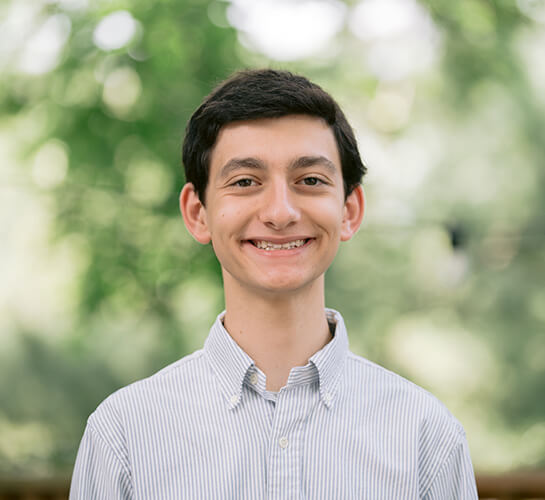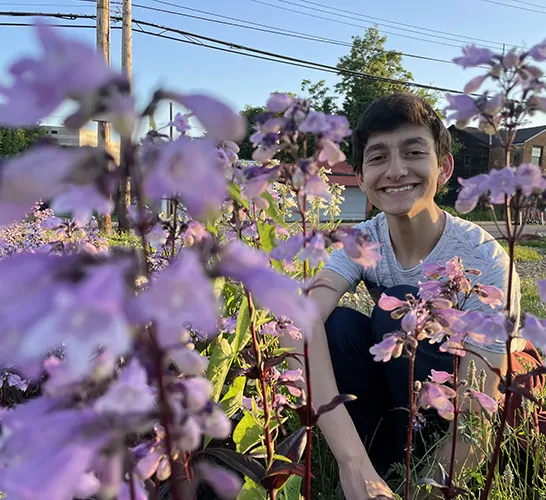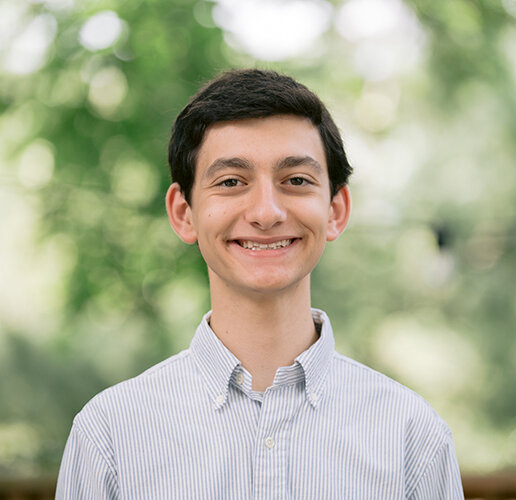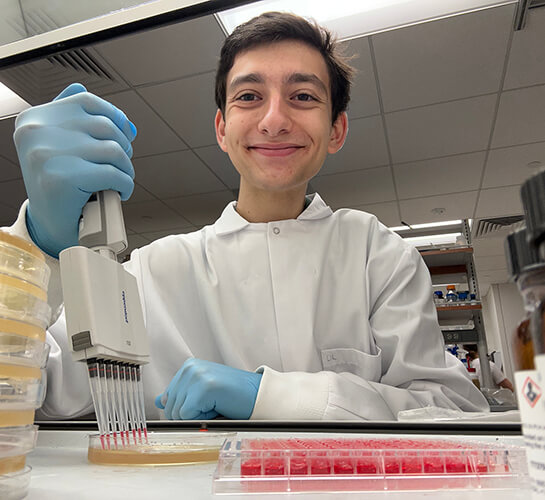Deeper Dive
Bacteria are vital for human life, yet in thirty years they are expected to kill more people than cancer. They swap nutrients and genes like trading cards and use enigmatic chemical languages to neutralize our current therapeutics. Like sticky rice, they glob together and form biofilms. This strategic formation captivates me because it enables bacteria to become hyper-cooperative and endure extreme conditions. My passion for the dynamic relationship between bacteria and humans led me to a chemical engineering lab where I used bacteria’s ingenious creations against them. I transformed biofilms from benign bacteria into bandages that block pathogenic bacteria from forming their own, effectively closing off a gateway for systemic infection.
During the course of this project, I encountered difficulties in incorporating a vital element for the bandages’ effectiveness—carbon nanotubes (CNTs). CNTs are essentially a one-atom-thick layer of pencil lead that is rolled up like sushi. Unlike sushi, CNTs have a unique combination of flexibility and conductivity that make them an ideal weapon in the battle against drug-resistant microbes. Trying to cram CNTs into the minuscule pores of the bandage material was like maneuvering furniture into an apartment with cramped hallways and low door frames. After months of trial, error, and discussion at lab meetings, I witnessed a deep black sample emerge from processing—the moment when the CNTs found their new home within the bandages! In my experience, embracing failure with an open mind set the stage for innovation.
My work centers on addressing the pressing issue of drug-resistant S. aureus, the leading cause of skin infections in the United States. S. aureus can colonize wounds and stop the healing process. Swift resolution of these infections is critical to prevent S. aureus from spreading and causing life-threatening illness. Conventional wound care methods can be time-consuming, prone to re-infection, and require frequent visits to wound clinics for debridement. The bandages I developed eradicate bacterial barriers to wound closure after a single hour of treatment and could simultaneously stimulate electrically responsive skin cells to migrate along charge gradients. By accelerating healing and reducing reliance on repetitive treatments, the engineered bandages improve quality of life, promoting efficient healing and progress without prolonged suffering.



